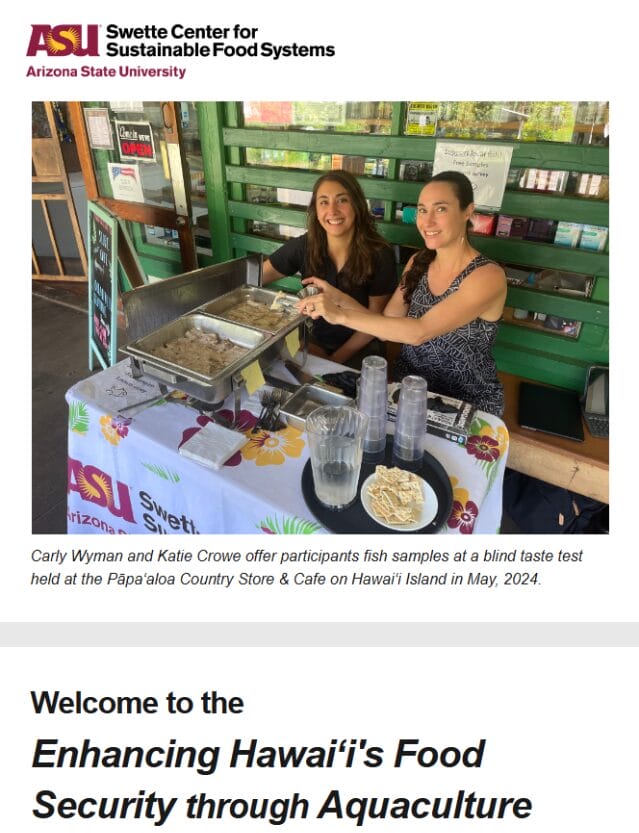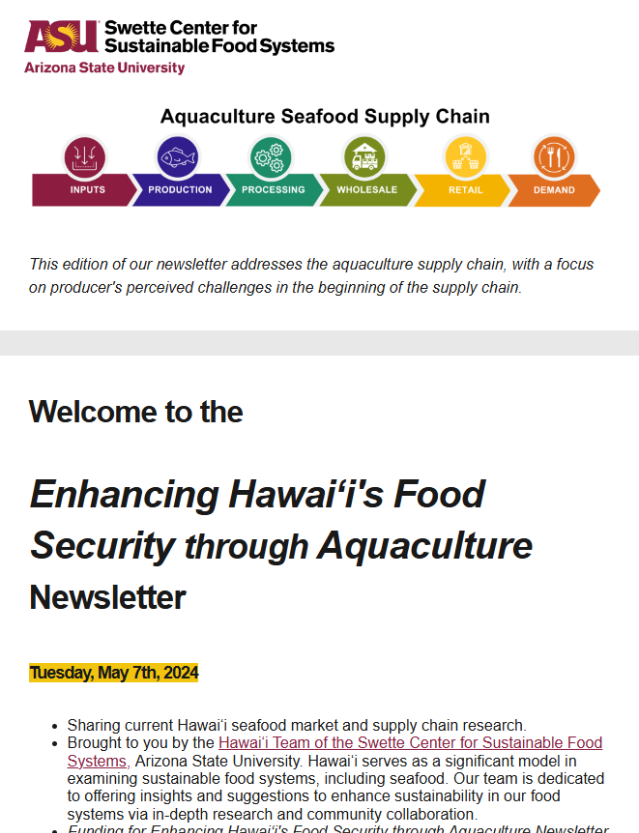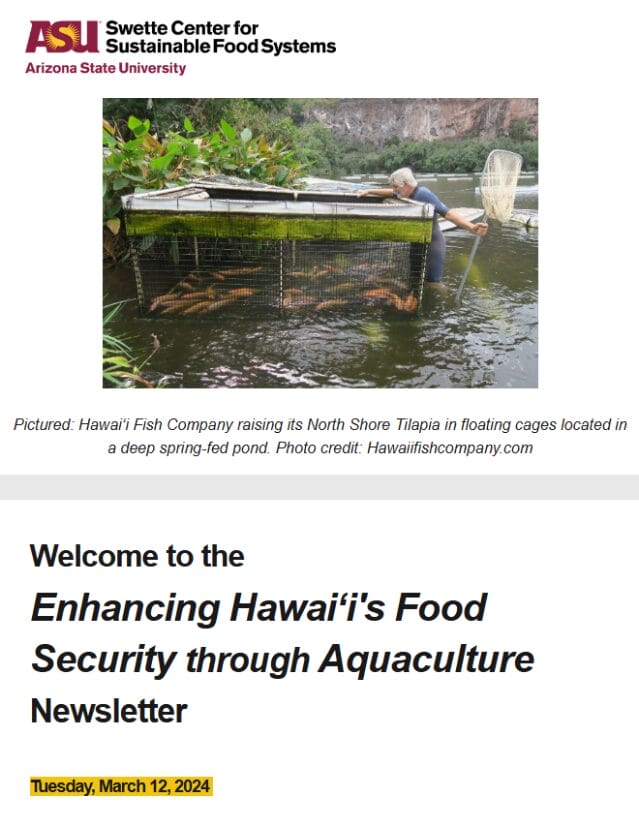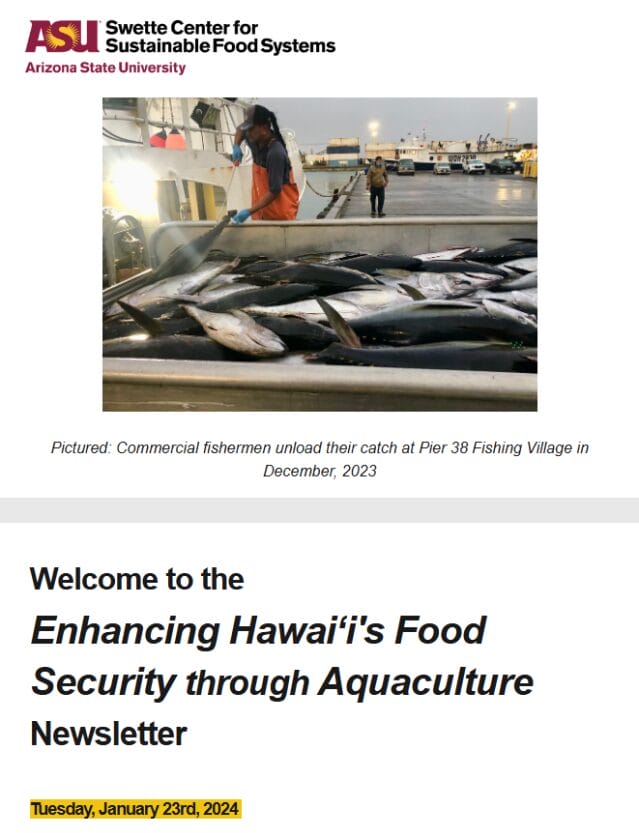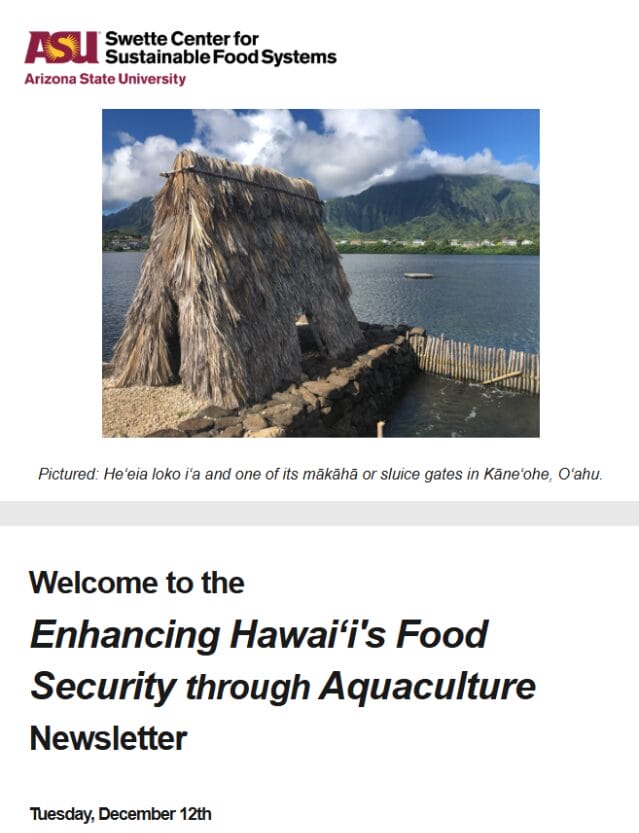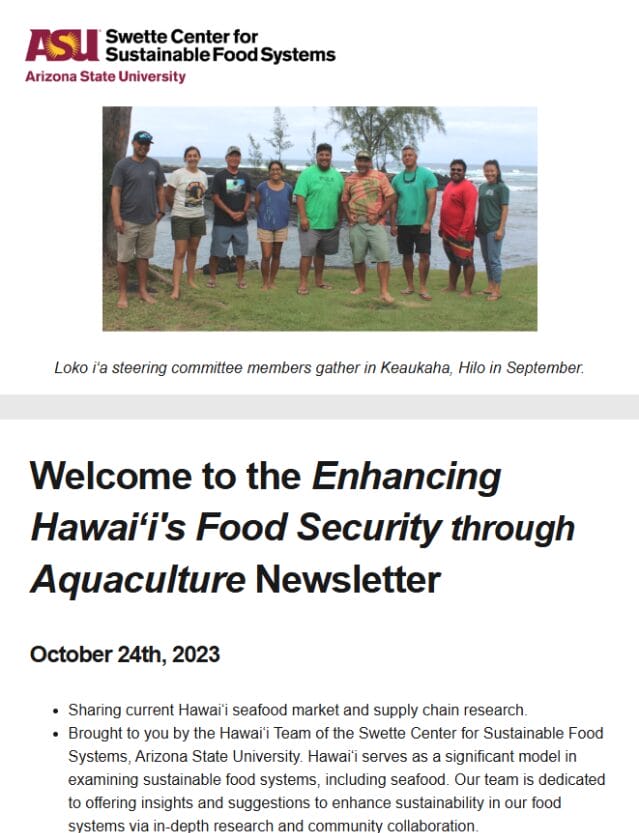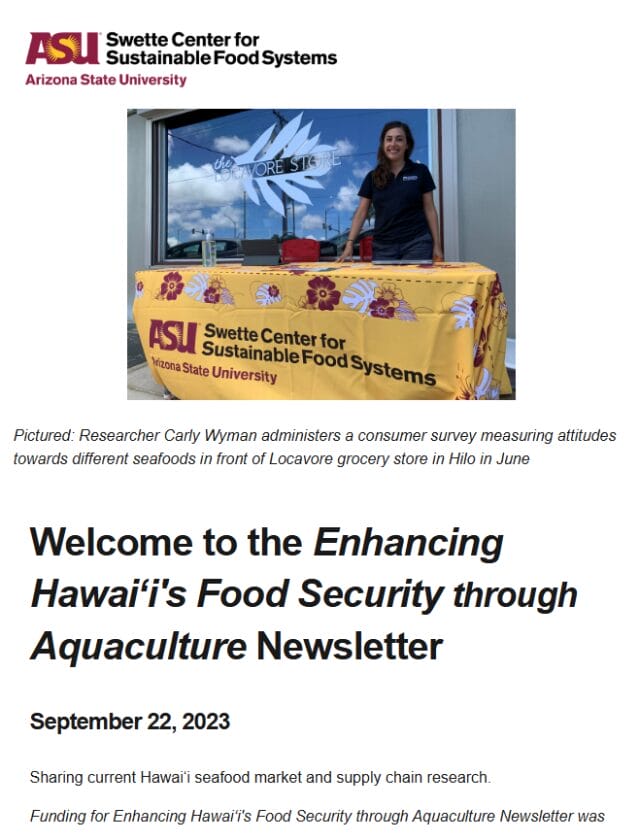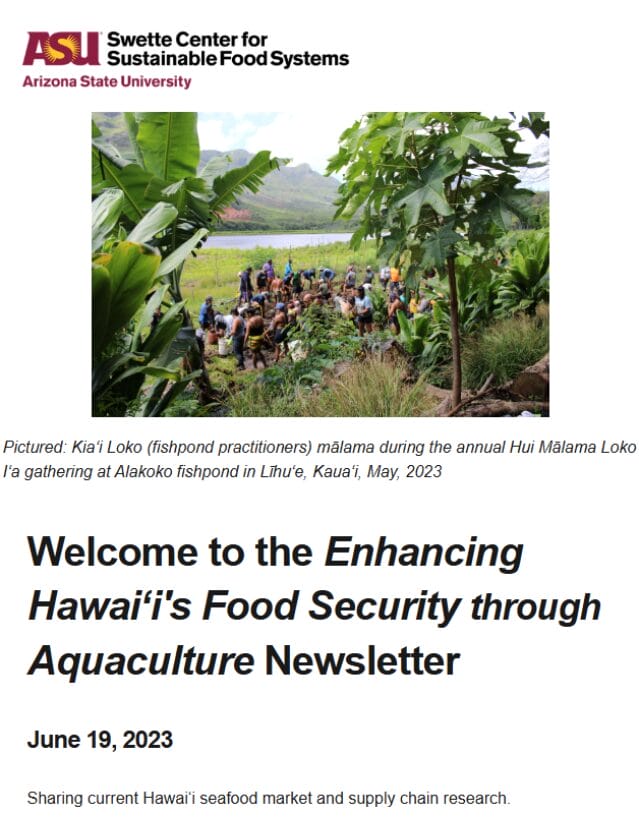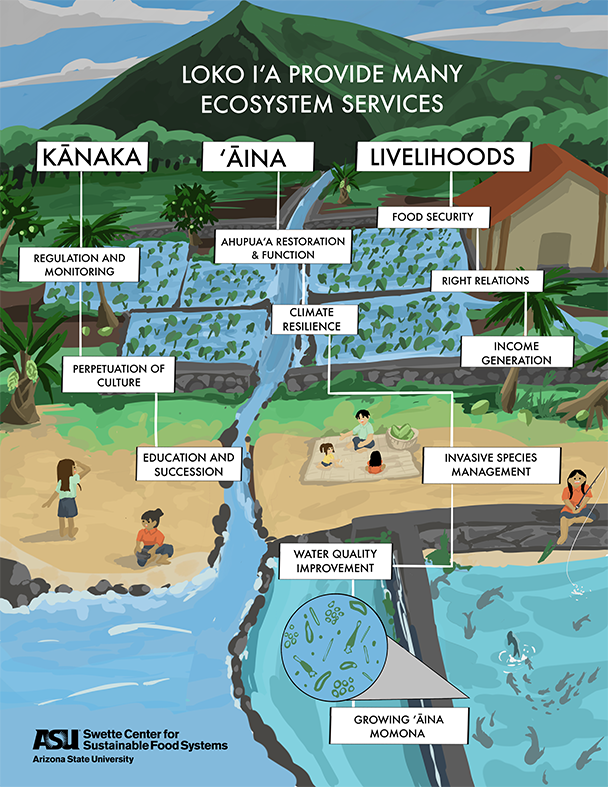
Swette Center in Hawaiʻi
Example hero paragraph text.
We “lead from behind,” supporting local groups in Hawaiʻi that are working tirelessly to build more robust and resilient local food systems.
ASU is a global university, with campuses and students around the world. The university has been actively working in the Hawaiian Islands since 2014 to establish collaborative and creative partnerships with those who share our institutional commitment to environmental and cultural sustainability.
Grounded in the belief that no future can be sustainable if it does not respect and draw from the culture and traditions of native peoples, the Swette Center’s work in Hawaiʻi is centered around meaningful engagement and development of strategic multi-sectoral partnerships with key stakeholders in the Hawaiian community. We view our efforts in Hawai‘i as a long-term process of relationship building and learning from Indigenous communities. All of this reflects the Swette Center’s commitment to creating a more economically robust, sustainable, equitable and resilient food system for Hawaiʻi and the world.
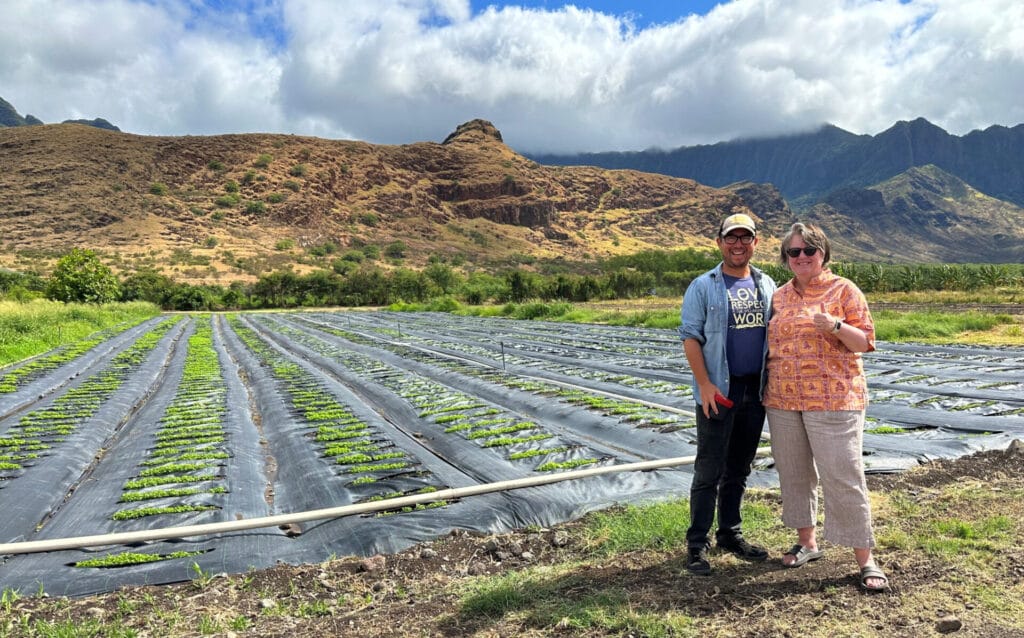
Hawaiʻi-based staff
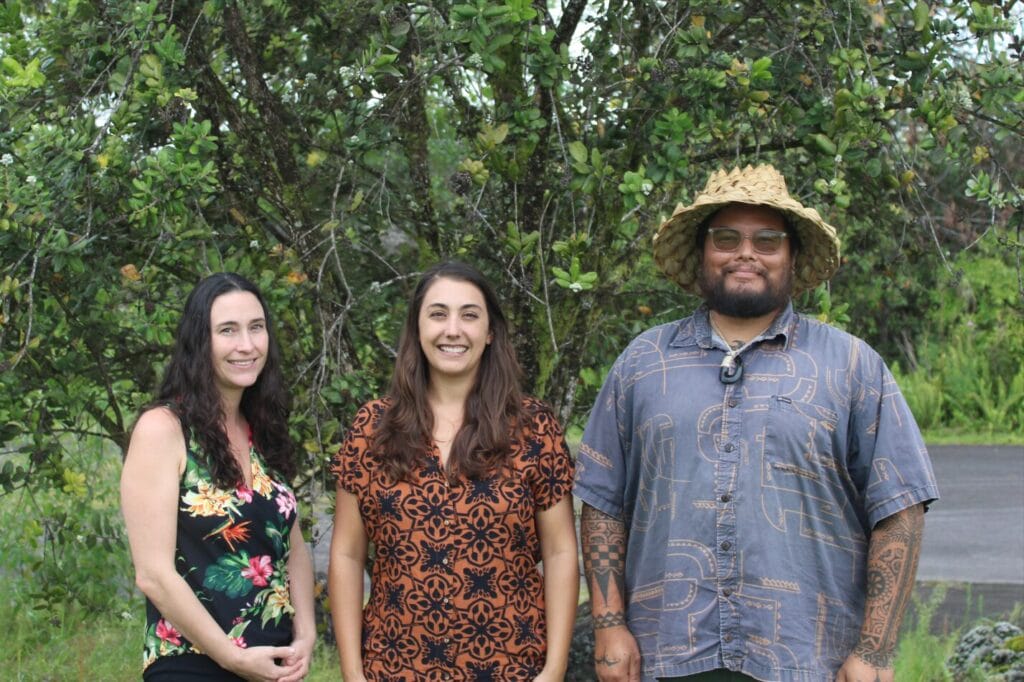
Our Hawaiʻi-based staff members, Carly Wyman, Tuki Drake, and Katie Crowe, are on the ground on the Big Island. Integrated into the community, they have a real understanding of the needs of the locals, and are dedicated to exploring the research needs of partner organizations and institutions. Carly has worked with organizations including the Maui Department of Agriculture, the County of Hawaiʻi Department of Research and Development, Kamehameha Schools and others to address needed research for Hawaiʻi’s emerging post-plantation agricultural landscape.
Research
Student capstones
Our graduate students and researchers have been actively engaged in studying and analyzing various aspects of Hawaiʻi’s food systems. Through their rigorous research, they have produced reports on topics such as agritourism in Hawaiʻi, industrial juicing, and slaughter capacity.
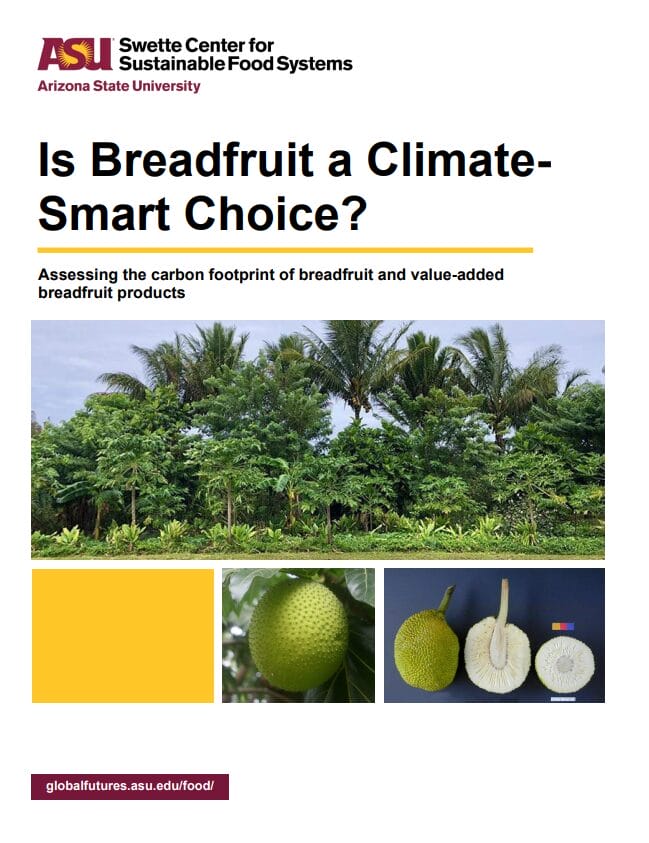
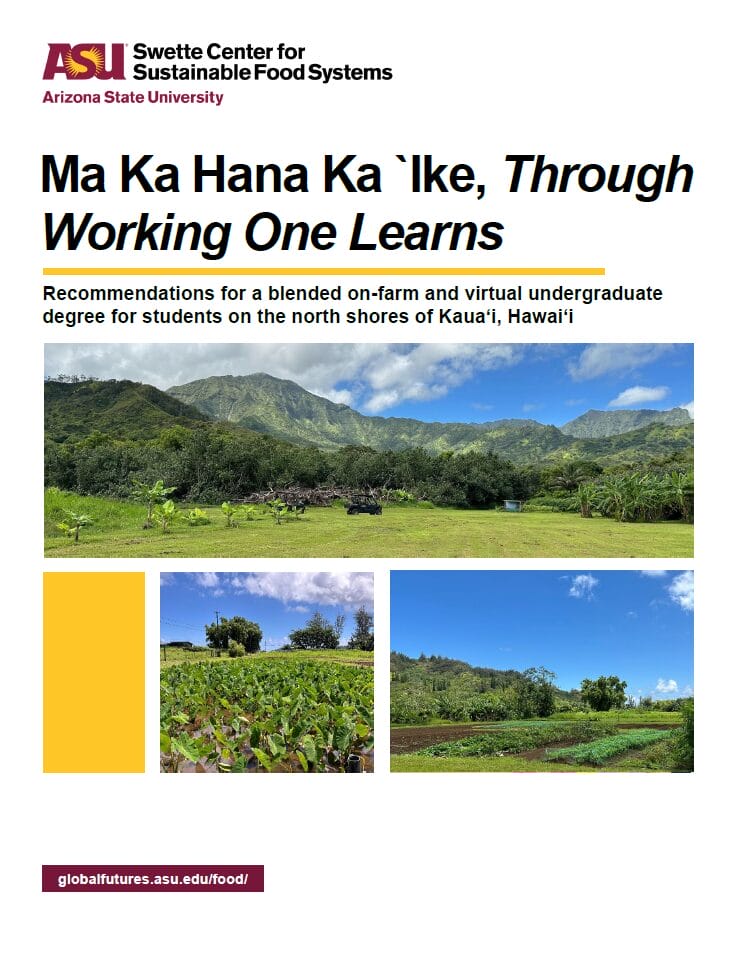
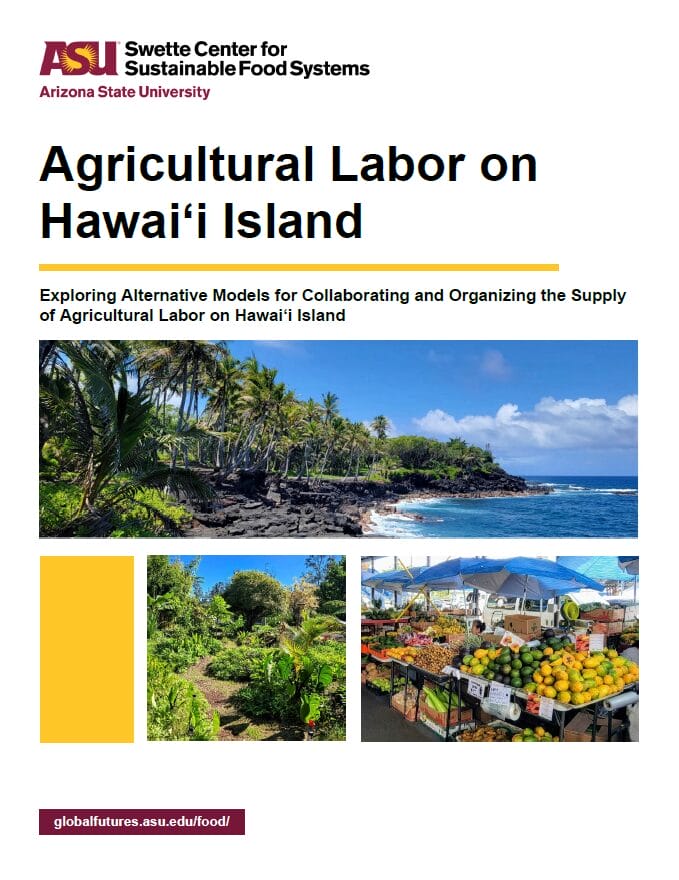
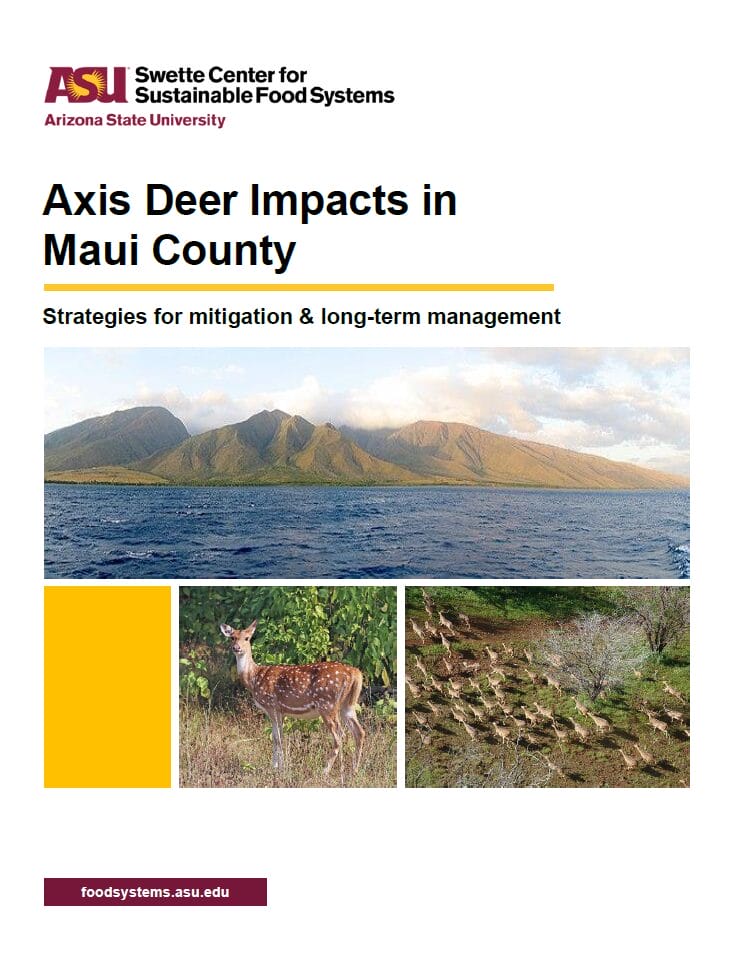
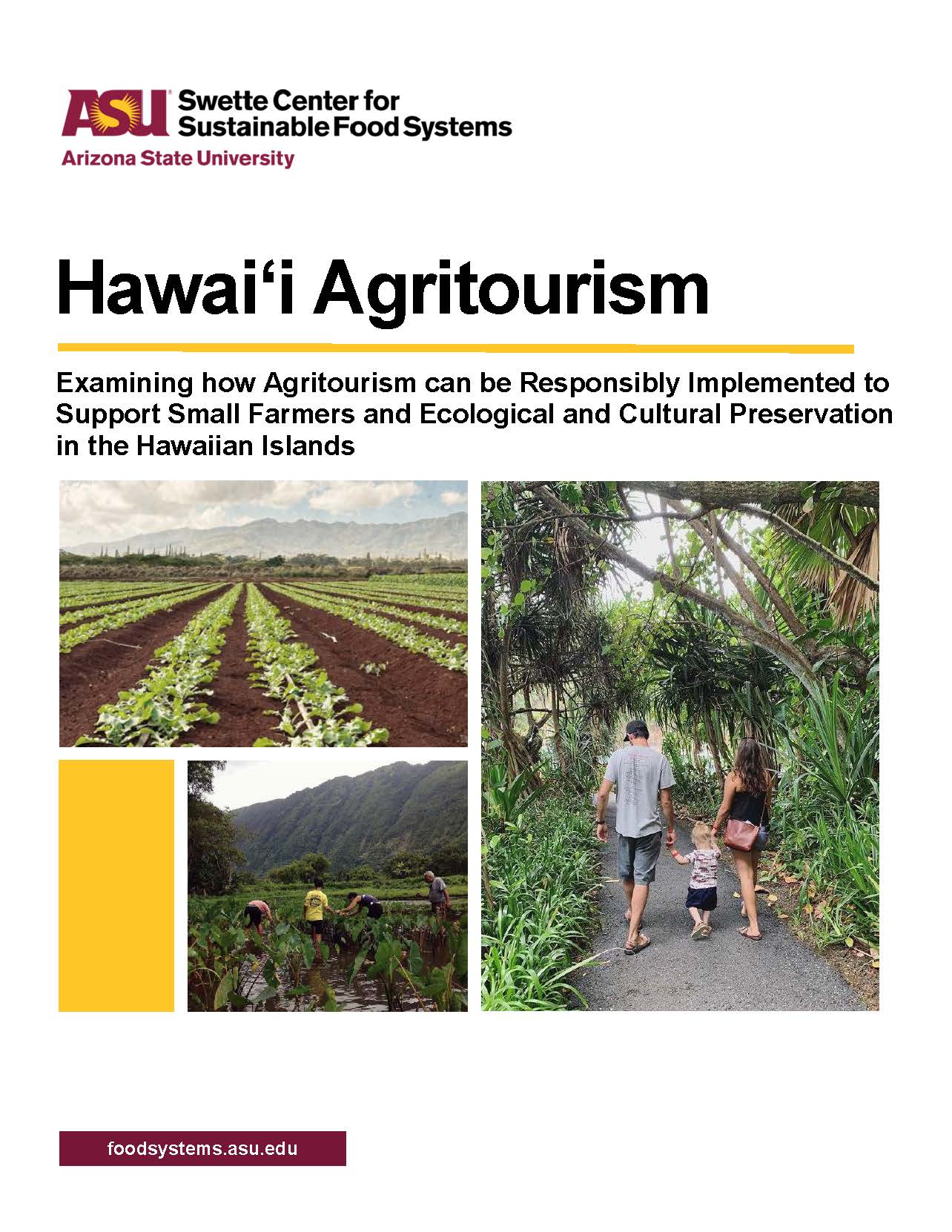
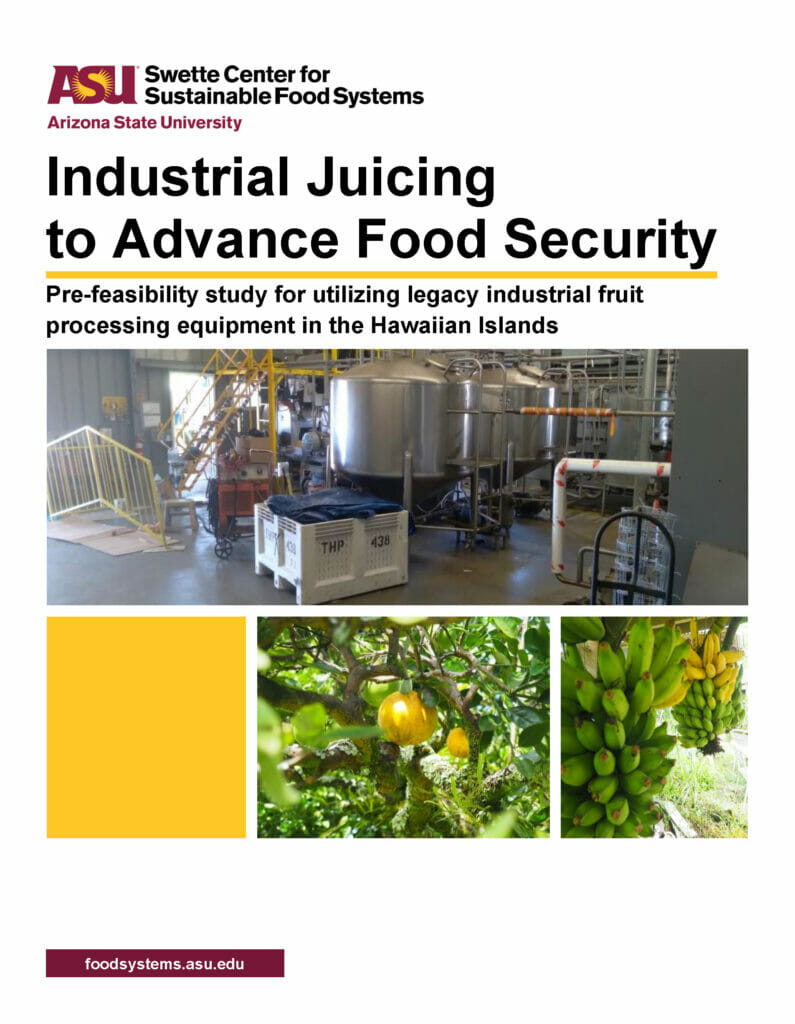
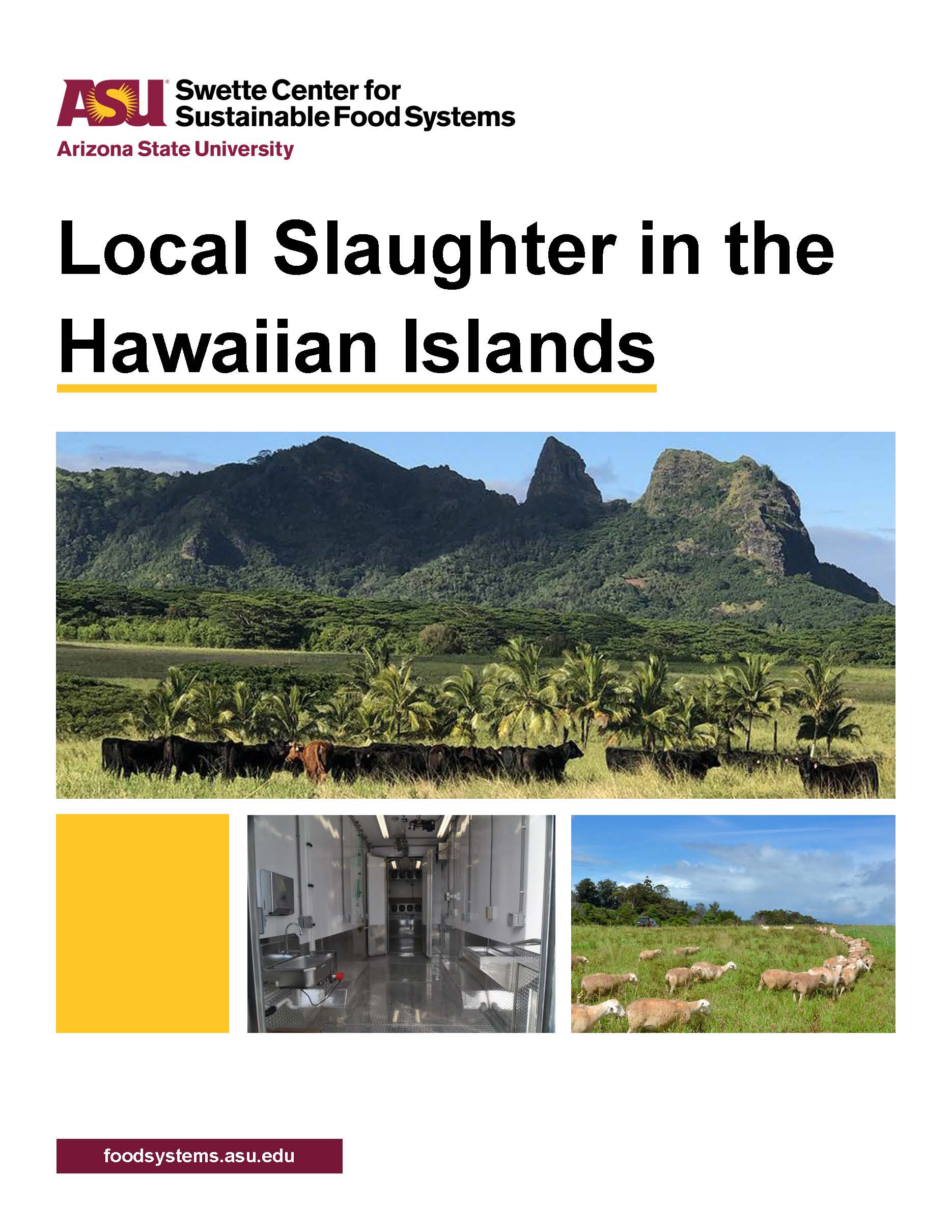
Enhancing Hawaiʻi’s food security through aquaculture
Hawaiʻi currently imports up to 63% of its commercial seafood. Local aquaculture production has the potential to aid in improving this lack of seafood self-sufficiency. Furthermore, the growing revival and restoration of traditional Native Hawaiian fishponds (loko iʻa) are serving as important contributors to community food security, while providing valuable ecosystem services. Our USDA-AMS funded project “Enhancing Hawaiʻi’s Food Security through Aquaculture” supports Hawaiʻi aquaculture producers by providing in-depth research on market and supply chain landscapes, and supports increased opportunities for community stewardship of loko iʻa.
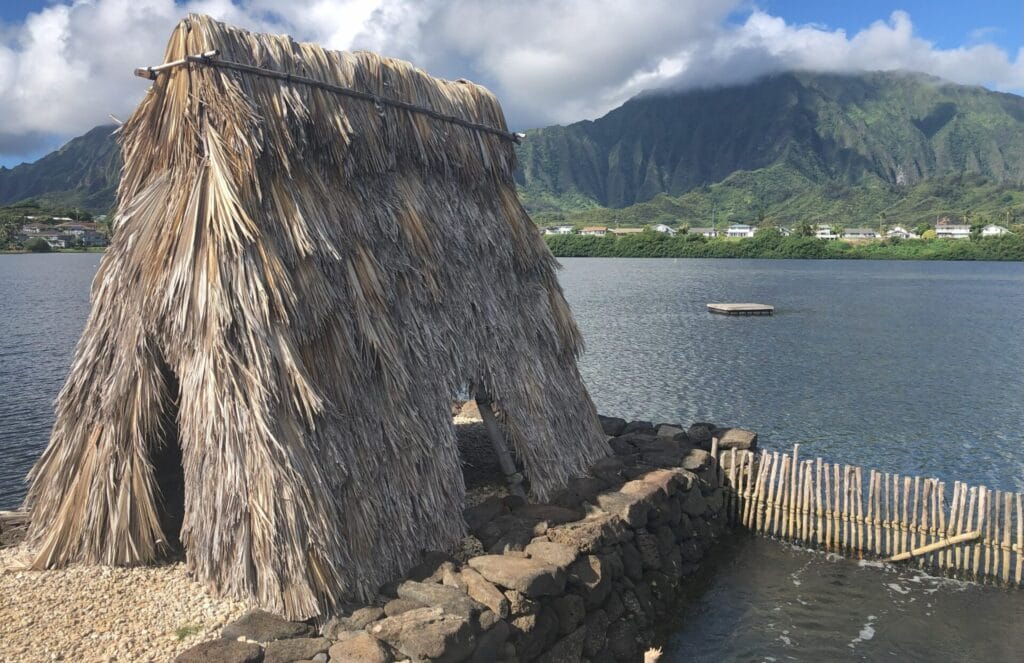
The first report of three that will be produced through this project, “Loko Iʻa for Agroecosystem Resilience,” is now publicly available. It is the product in part of community-based research and collaboration with Kuaʻāina Ulu ʻAuamo (KUA) and the Hui Mālama Loko Iʻa (HMLI) network. This report may serve as a resource for kiaʻi loko (fishpond protectors/stewards), policymakers, and communities alike to understand both established pathways towards loko iʻa stewardship, as well as current barriers. In addition, it proposes a novel framework for identifying and communicating the value that loko iʻa provide through the provision of ecosystem services. Finally, it explores a framework for potential certification standards and branding of loko iʻa products to support enhanced food sovereignty.
Two additional reports – “Hawaiʻi Aquaculture Supply Chain Analysis” and “Hawaiʻi Aquaculture Market Analysis” are forthcoming. They shed light on challenges and opportunities faced by the Hawaiʻi aquaculture industry and provide research-based recommendations for producers and other stakeholders.
Project reports
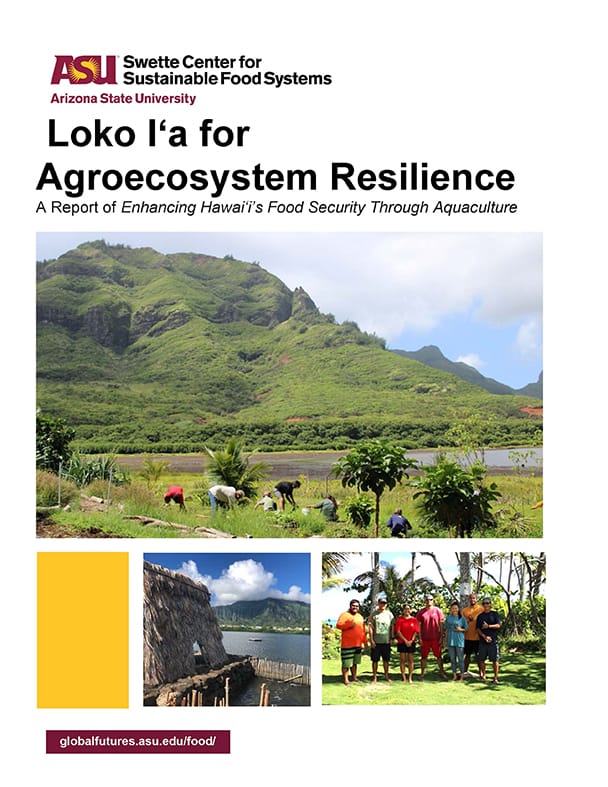
Loko Iʻa Ecosystem Services poster
Want to learn more and stay updated about this project? Check out our past newsletter publications below and sign up to subscribe to future newsletters.
Past newsletters:
